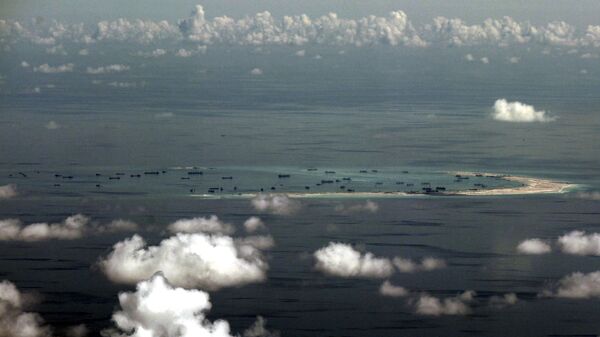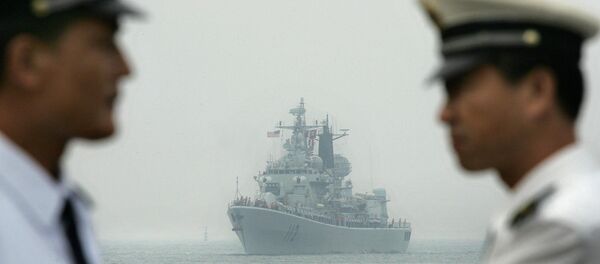China’s construction of artificial islands in the Spratly archipelago has angered countries in the region. While the Chinese government maintains it has every right to build within what it claims is its territory, those claims overlap those of Vietnam and the Philippines.
The Philippines has filed a claim against the Chinese government in an international arbitration court, a move Beijing does not acknowledge.
On Monday, Australian Foreign Minister Julie Bishop offered her own opinion of the dispute, while speaking in Tokyo.
"We recognize the Philippines’ right to seek to resolve the matter through arbitration, but we urge all claimants to settle their disputes peacefully without coercion, without intimidation," she said.
Bishop’s comments came ahead of an official visit to Beijing on Tuesday, and Chinese officials were quick to express their disapproval.
"China certainly will not accept this," Chinese Foreign Ministry spokesman Hong Lei told reporters. "Australia ought not to selectively avoid this reality."
Hong stressed that China views the arbitration case as a contravention of international law and ignores previous agreements made by officials in Beijing and Manila.
Speaking in Tokyo, Bishop said she would ask Chinese officials to elaborate on how the country intends to use the islands.
"In the past, [Chinese] Foreign Minister Wang Yi has said they will be public goods, so I am seeking more detail as to how other nations could access these public goods," she said. "Depending upon the answer he gives, we will look at the situation."
In the South China Sea disputes, Australia has routinely sided against China, backing the United States and its regional allies. In 2014, the US began conducting surveillance flights out of Australia, monitoring the progress of China’s land reclamation efforts.
The Australian military has also been conducting secret ‘freedom of navigation’ flights near the Spratly Islands. Meant to challenge China’s territorial claims, these flights are similar to the patrols conducted by the US Navy.
The Chinese government has called both nations’ actions illegal.
A highly contested waterway, nearly $5 trillion in trade annually passes through the South China Sea. While China lays claim to most of the region, there are overlapping claims by Vietnam, Taiwan, the Philippines, Brunei, Indonesia, and Malaysia, among others.





